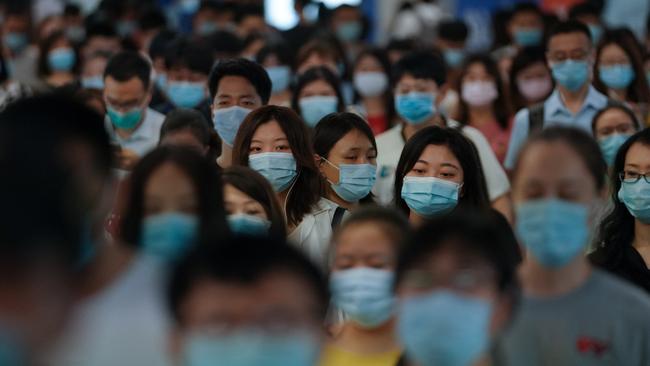China: it’s a big red flag
China can’t feed, let alone provide power for 1.4 billion people living a middle-class lifestyle. It needs supplier states like us.

What is going on with China? For decades, Australia-China relations have strengthened via trade, travel and immigration. Now we seem to be all at odds. It’s like a relationship that has soured. Was it something we said? Or didn’t say?
For years, the thinking was that China needs us; it needs our iron ore, coal, gas, tertiary education and agribusiness products. And now we’re being shunned, given the cold shoulder, with tariffs slapped on our barley and beef and travel warnings issued to university students about “Australian racism”.
Initially I thought these micro aggressions were part of a broader strategy to counter the possibility of retaliation for what some in the West were calling the “Wuhan virus”. But apart from our Prime Minister calling for an inquiry into the origin of coronavirus, we have been remarkably restrained.
Here’s what I think. China does not have the resources to feed, let alone provide power, steel and energy for 1.4 billion people living a middle-class lifestyle. It needs supplier states. We’re a supplier state. There’s no need for China to “control” Australia; merely to buy certain assets, such as ports, and to reward compliant behaviour and communicate displeasure with any unhelpful commentary. Supplier states usually get the message. The problem is that we Australians can get a tad antsy if provoked, and especially if we feel we’re being told what to do. I think Australia crossed the Antsy Line about a month ago.
How will all this play out? Try this for size. In a free-trading global economy based on access to cheap labour and just-in-time supply chains, China can never really compete with the West for quality of life. Its rising middle classes might initially want an apartment, a mobile phone and perhaps the option of eating Australian beef and drinking a Barossa red, but eventually they will also want other less tangible aspects of life in the West, including freedom of expression. That is problematic for the ruling Communist Party.
Nevertheless, Beijing has gone on the offensive in its international relations, asserting its authority, testing opinion, dissecting responses, knowing all the while that if its strategy goes cactus, the “unprincipled capitalists” of the West will happily revert to a trading relationship.
If China is to emerge from the 2020s as the world’s largest economic force, and well on its way to the world’s largest military force, it will want to bolster its strategic holdings, just like previous superpowers. For example, by militarising the Spratly archipelago and other islands in the South China Sea, to protect its sea lane approaches. The US has military bases on the islands of Guam and Okinawa, Japan, and in countries such as South Korea, giving it “access” to China. Why wouldn’t China therefore want forward military bases of its own in the South Pacific?
There’s another potential benefit in China’s strategy. Australia’s Antsy Line is propped up by our longstanding reliance on US military might. Take that away and our compliance is suddenly more assured. Or at least that could well be the calculation from afar.
The best-case scenario is that China merely wants to give Australia a bloody nose, to rough us up a bit, and to move on. In which case we will all get back to business as usual after the pandemic. Another scenario, and by no means the worst case, is that Australia is a less prosperous, more compliant, and less secure nation by 2030.
It all depends on where we set and how we hold the Antsy Line.




To join the conversation, please log in. Don't have an account? Register
Join the conversation, you are commenting as Logout